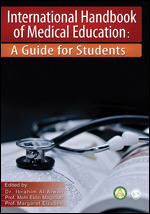International Handbook of Medical Education
Availability :
In Stock
₹ 6,135.75
M.R.P.:₹ 7575
You
Save: ₹1,439.25 (19.00% OFF)
(Inclusive
of all taxes)
Delivery:
₹ 0.00 Delivery charge
Author:
Ibrahim Al Alwan
Publisher:
SAGE Publications Ltd
Edition:
1st Edition
ISBN-13:
9781446247211
Publishing Year:
March 2012
No. of Pages:
376
Weight:
635 grm
Language:
English
Book Binding:
Paperback











